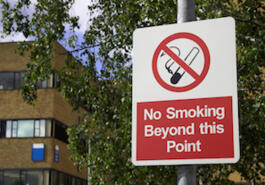Americans Welcome The Arrival of Spring
Sunday was the first official day of spring, leaving behind Americans' least favorite season and putting most in a better mood.

Sunday was the first official day of spring, leaving behind Americans' least favorite season and putting most in a better mood.

Freedom of speech. It’s the First Amendment to the U.S. Constitution and for many the most important. But most Americans still feel it’s in danger.

Following a unanimous U.S. Supreme Court decision this week to uphold an adoption by a lesbian couple in Georgia, just over half of Americans say they support same-sex couples adopting children.

Americans are very angry politically as the surprising success of Donald Trump and Bernie Sanders clearly indicates, but fortunately they're not taking that anger out on their family and friends.

Americans don't consider their fellow countrymen an overly honest group, but they think most play fair when it comes to their taxes.

Voters disagree with Apple’s decision to challenge a federal court order to unlock an iPhone used by one of the attackers in the San Bernardino, California terrorist massacre, with even more continuing to say preventing terrorism is more important than protecting Americans’ privacy.

President Obama's recent executive actions on solitary confinement and the treatment of mentally ill prisoners are the latest efforts in a bipartisan push to reform the country’s prison system. While most Americans agree that too many people are incarcerated, many also feel conditions in America's prisons today aren't tough enough.

The World Health Organization this week officially declared a public health emergency in response to the rapidly spreading Zika virus in Latin America. While a majority of Americans show some concern about the virus, they also think the media overhypes such outbreaks.

While the residents of Flint, Michigan deal with the repercussions of lead-contaminated drinking water, the vast majority of Americans still consider their home water supply quite dependable.

Confidence in race relations in America continues to fall, with hopes for the future at their lowest level yet.

Half of Americans intended to get in on this week’s unprecedented $1.6 billion Powerball jackpot even though very few know someone who has ever won a big lottery.

Tattoos are certainly more commonplace in society, but are they becoming completely acceptable?

Americans used the U.S. Postal Service more this holiday season and continue to give the quasi-governmental agency better marks than its private competitors for the way it handles their packages.

Americans are embracing the holiday season this year and are in the giving spirit.

Following another week of high-profile mass murders, Americans are more convinced than ever that media coverage of such tragedies inspires others to commit violence.

All I want for Christmas is - my very own drone?
One-in-five American Adults (19%) say they or an immediate family member is at least somewhat likely to purchase an unmanned drone for personal use in the next year, including 11% who say they are Very Likely to do so. A new Rasmussen Reports national telephone survey finds that 78% are unlikely to purchase a drone in the near future, with 56% who say that is Not At All Likely to happen.

Americans are shopping at a faster pace this holiday season than they have in the past several years.
In Rasmussen Reports’ first look at the 2015 holiday season, 43% of American Adults say they have started their gift shopping. Fifty-four percent (54%) have not.

Americans agree on the importance of sleep, but a sizable number say they don't get enough of it.

The federal Department of Housing and Urban Development has proposed banning smoking in all of the nation’s 1.2 million public housing units. Voters like the idea but seriously doubt that it will work.

Local crime remains a problem for most Americans who also feel that local cops aren't aggressive enough in dealing with it.